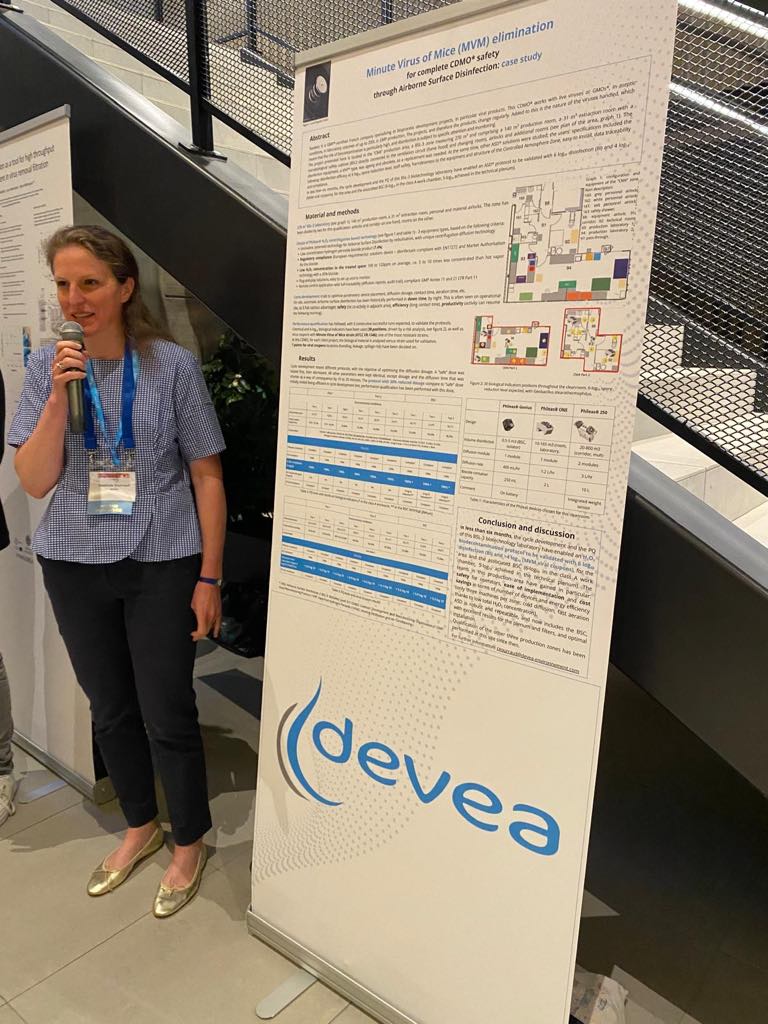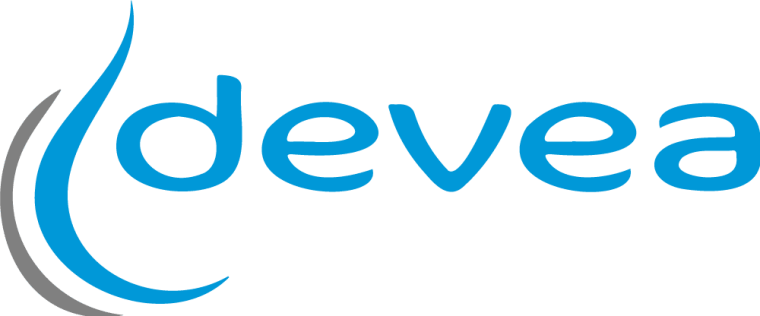ASD Virus validation presented at PDA
Naobios, a French CDMO certified to GMP standards and specialized in bioprocess development projects — particularly those involving live viruses or GMOs — has validated an Airborne Surface Disinfection (ASD) protocol in one of its most sensitive areas, classified as BSL-3. 6-log10 bacterial spores (Geobacillus stearothermophilus) and 4-log10 virus (MVM) reduction were expected and have been exceeded with Phileas devices and O2SAFE7.4 biocide, with the help of Devea Services.
As part of the PDA 2025 Congress in Gothenburg, we presented a poster on controlling biocontamination in a sensitive production area. This 270 m² zone includes a 140 m² production room, an extraction area equipped with a microbiological safety cabinet connected to the ventilation system, as well as airlocks and ancillary areas. The risk of biocontamination is particularly high due to the variable nature of the viruses being handled.
The previous disinfection equipment, based on VHP technology, had become obsolete, prompting this site to evaluate several alternative solutions. Among these, the Phileas® equipment was selected, known for its performance and reliability. The selection criteria were:
🔹 Proven efficacy (6 log₁₀ reduction of spores and 4 log₁₀ on the MVM virus),
🔹 Operator safety,
🔹 Preservation of equipment integrity,
🔹 Ease of installation and of use,
🔹 Traceability and regulatory compliance.
In less than six months, the cycle development and performance qualification (PQ) enabled the validation of an effective airborne surface disinfection (ASD) solution, with:
✔️ Biological Indicators (BIs): 6 log₁₀ reduction
✔️ MVM viral coupons: 4 to 6 log₁₀ reduction
✔️ Up to 6 log₁₀ reduction in the class A biosafety cabinet.

🔬 A concrete advancement in biosafety for the production of viral products in a controlled environment


